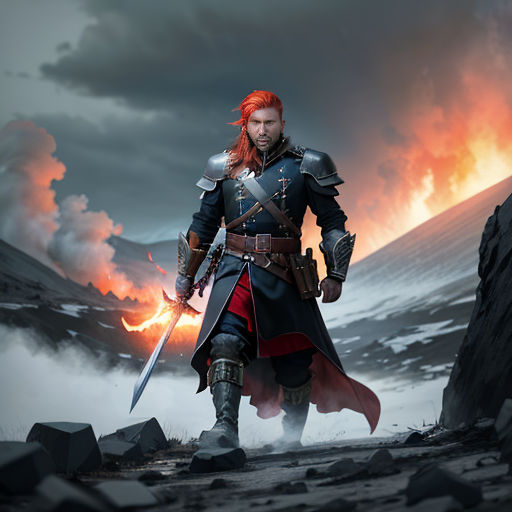
The Crimson Commander
By Storybird

26 Sep, 2023
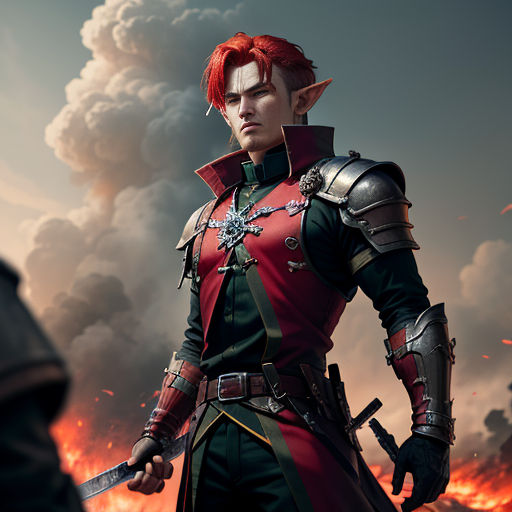
In the year 2629, the Dark Army was led by an elf with pale skin and fiery red hair. Known as the Crimson Commander, his striking image was a stark contrast against the bleak, war-torn landscape. His cold, calculating eyes glowed with determination as he looked over the battlefield.
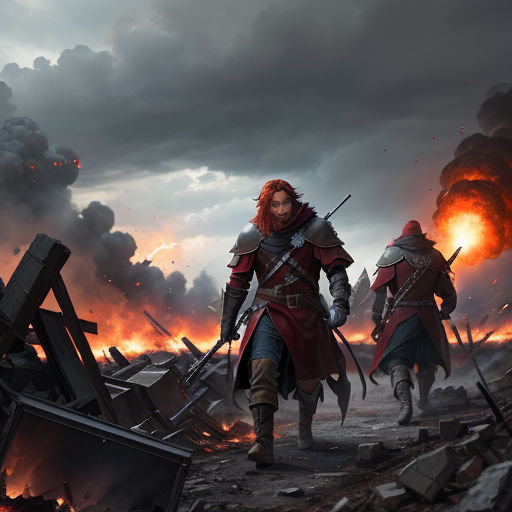
Under his leadership, the Dark Army, backed by Ukraine, launched an invasion of Russia. The commander's strategic brilliance was evident as they made significant inroads into the enemy territory.
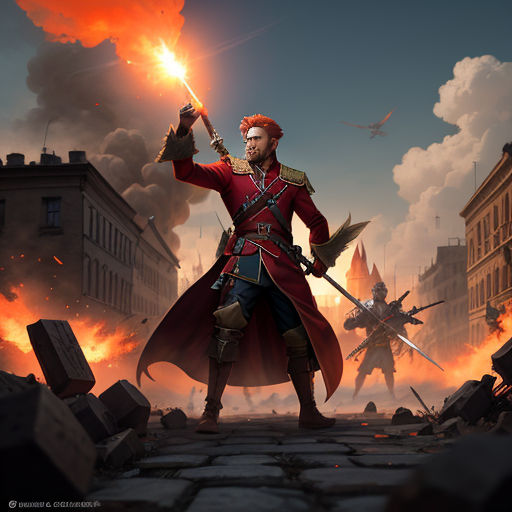
Their first major victory came when they laid siege to the city of Rostov. The Ukrainian forces fought alongside them, liberating the city from Russian control.
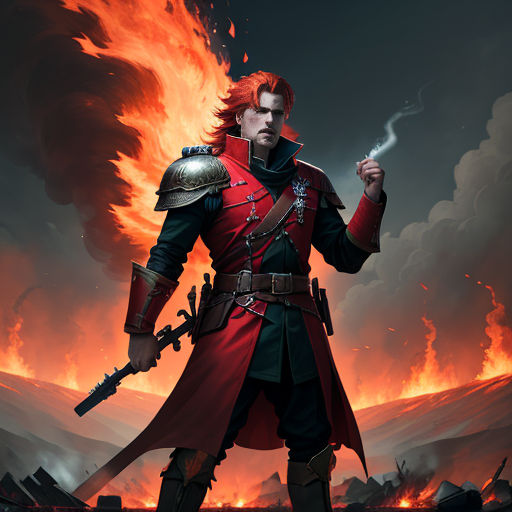
To signify their victory, the commander ordered the burning of the Russian flag. The flames reflected in his eyes as he watched it burn, symbolizing the downfall of the Russian regime.
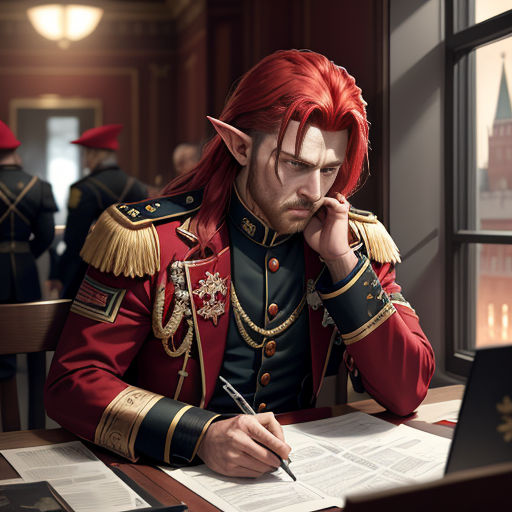
Back in Moscow, the Russian government was in a state of panic. They were well aware of the commander's military prowess and were devising plans for the annihilation of the Dark Army.
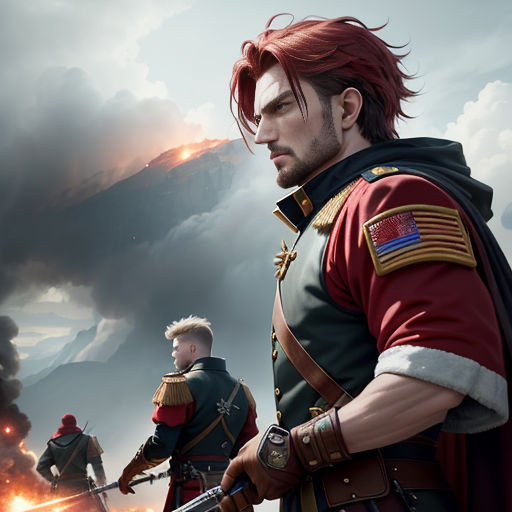
Their main focus was to reclaim the western territories lost to the Dark Army. The Russian generals knew that they had to act swiftly, or they risked losing more ground to the invaders.
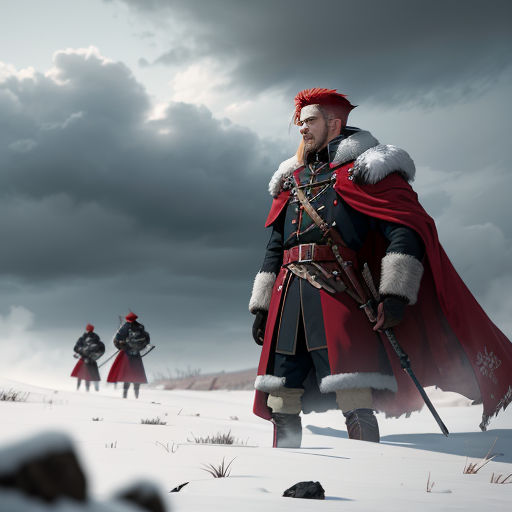
Meanwhile, the Crimson Commander was not one to rest on his laurels. He was already planning their next move, anticipating the Russian retaliation.
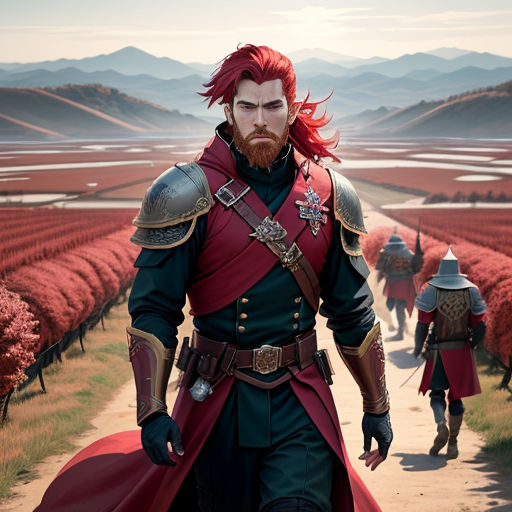
He knew that the key to maintaining their advantage was to keep the enemy guessing. So, he decided to split his forces, sending a decoy towards the east while he led the main army towards Moscow.
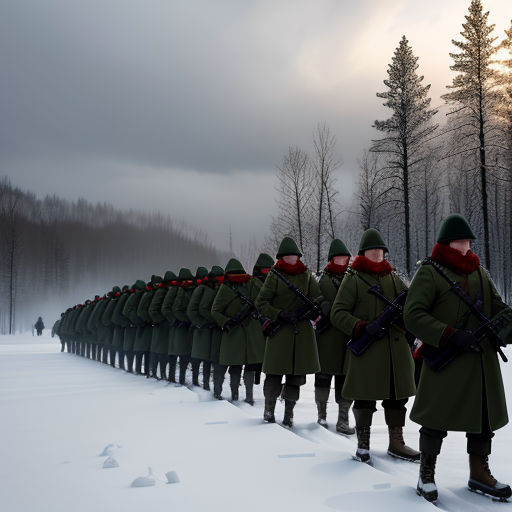
The Russian forces, expecting the Dark Army to advance from the west, were taken by surprise. The decoy had served its purpose, diverting their attention and resources.
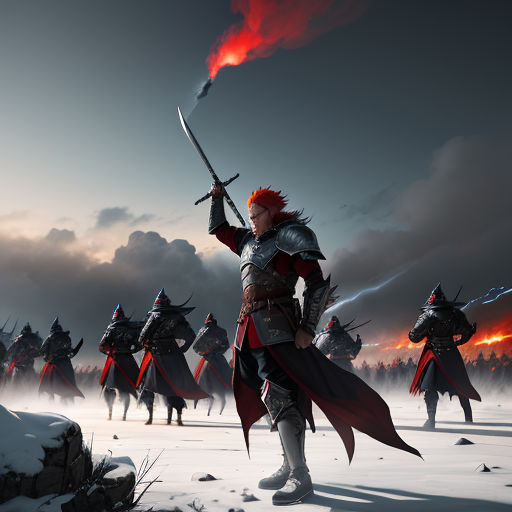
In the meantime, the main force of the Dark Army was making steady progress towards Moscow. The commander's strategy was working, but he knew that the hardest battle was yet to come.
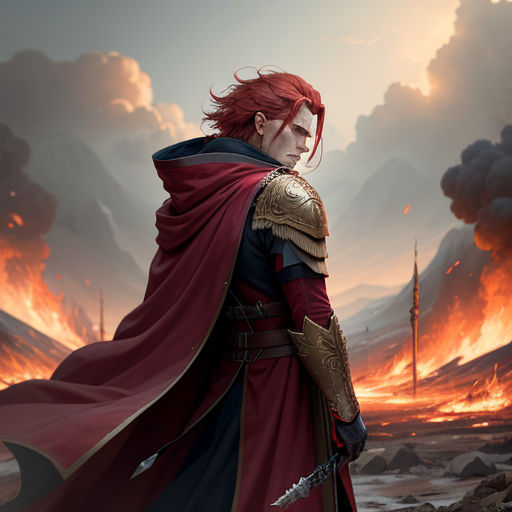
As they neared the capital, the resistance from the Russian forces grew stronger. However, the commander remained unfazed, his resolve only strengthened by the increasing challenges.
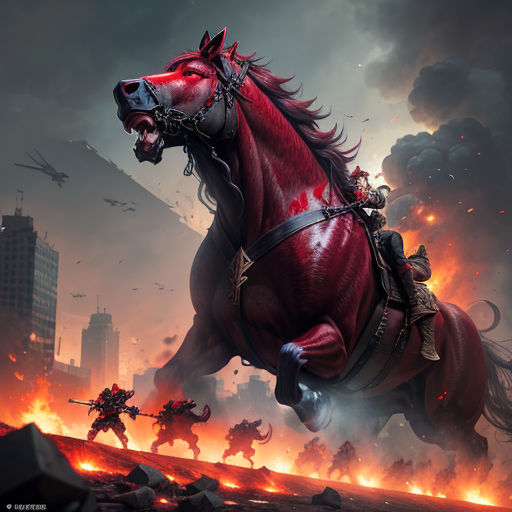
The battle for Moscow was intense, with both sides suffering heavy losses. But the commander's strategic brilliance shone through once again, as the Dark Army managed to breach the city's defenses.
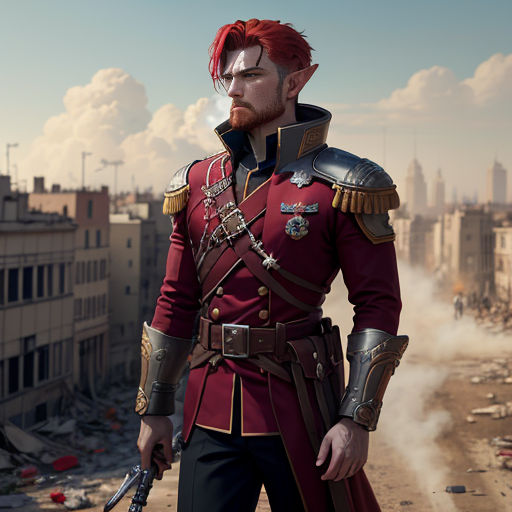
The fall of Moscow marked a significant turning point in the war. The Crimson Commander's reputation grew, as did the morale of his troops. However, he knew that the war was far from over.
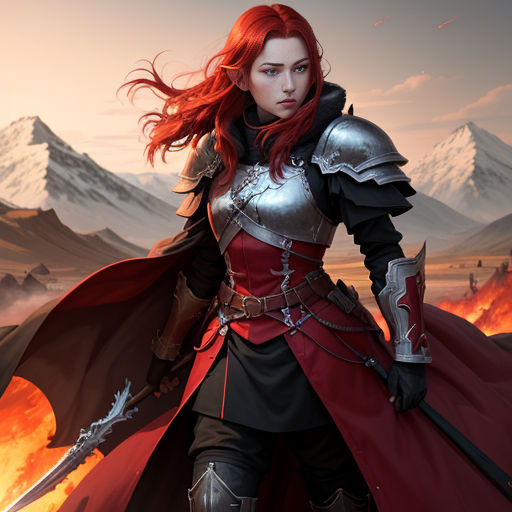
In the ensuing months, the Dark Army continued to make gains, slowly but surely extending their control over Russia. The commander's strategies were unorthodox, but they were working.
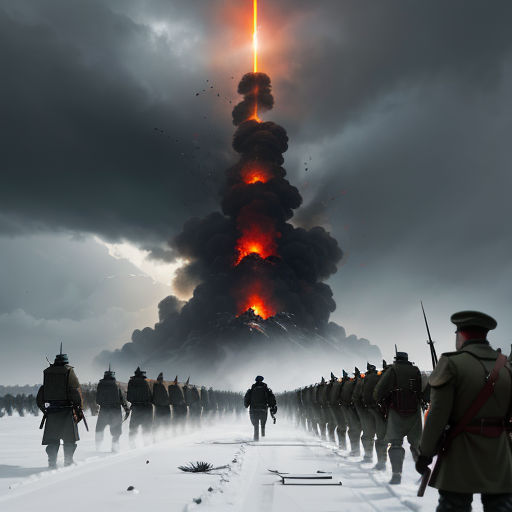
However, the Russian resistance was not completely crushed. They regrouped and launched counterattacks, determined to reclaim their lost territories. The war was far from over, and the commander knew it.
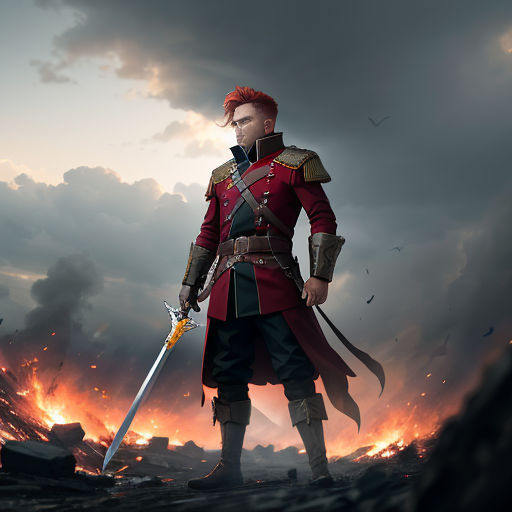
Despite the setbacks, the commander remained undeterred. He knew that victory was within their reach, but it would require every ounce of their strength and determination.
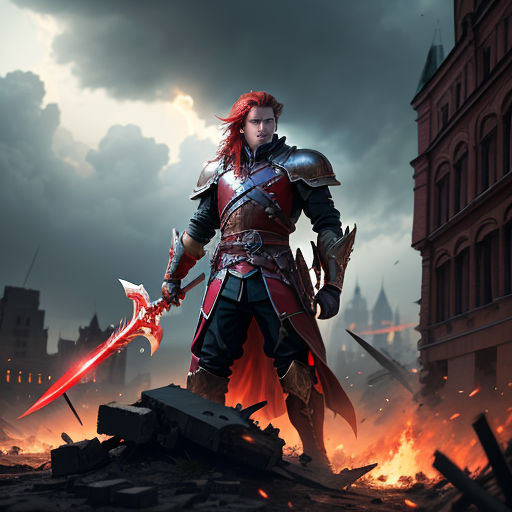
The final battle was fought in the heart of Moscow, where the Russian forces made their last stand. It was a battle of attrition, with both sides pushing their limits.

In the end, it was the commander's indomitable spirit and strategic brilliance that tipped the balance in their favor. The Dark Army emerged victorious, marking the end of the war.
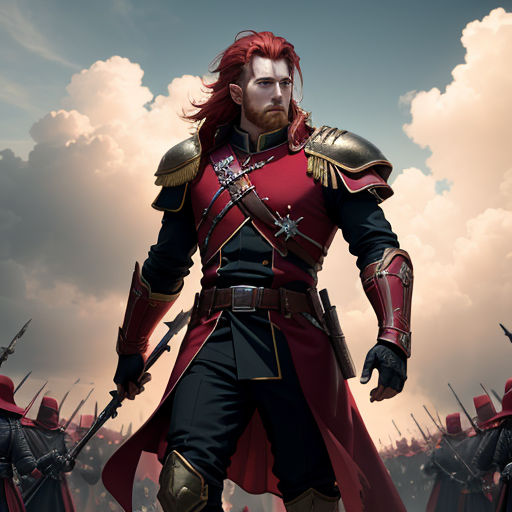
The Crimson Commander's victory was hailed by his troops and allies alike. His name would be etched in history as the elf who led the Dark Army to victory over Russia.
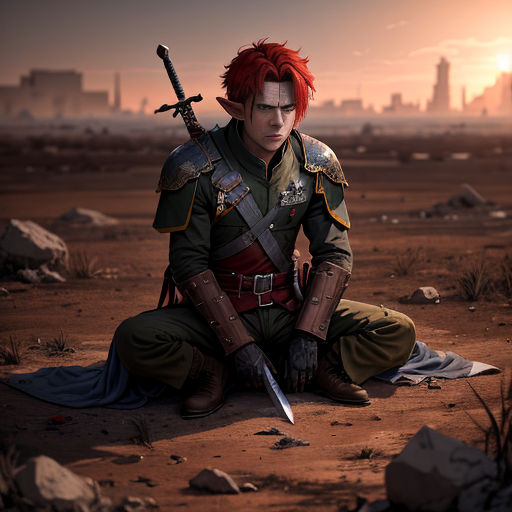
Yet, despite his victory, the commander was not one to celebrate. He knew that the cost of war was high, and the scars it left were deep. He sought to rebuild and establish peace.

He worked tirelessly to bring stability to the regions under their control. He pushed for peace talks with the Russian government, aiming for a future where such conflicts would not arise again.
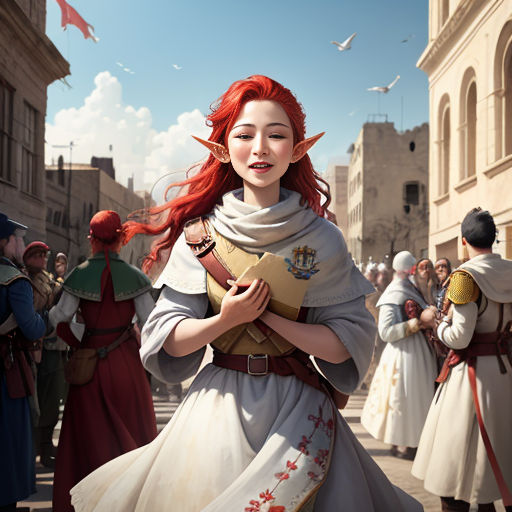
The commander's efforts bore fruit, and a peace treaty was signed. The war had ended, and the process of healing and rebuilding had begun.
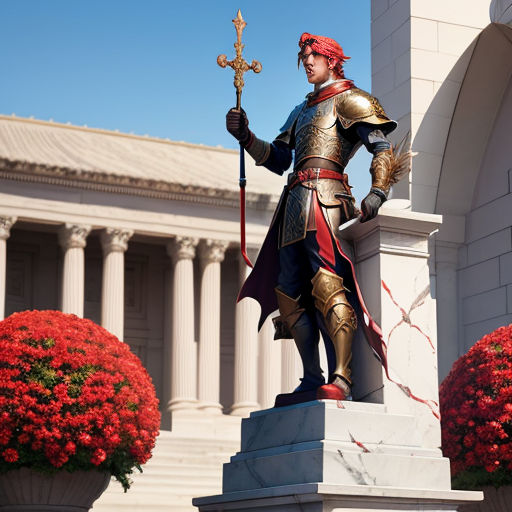
Despite his military prowess, the Crimson Commander would be remembered not just as a brilliant strategist, but also as a peace-maker. His legacy was one of victory and reconciliation, not destruction.
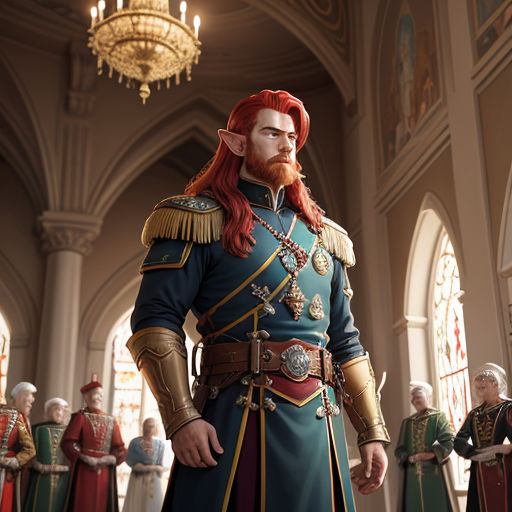
As the years passed, the commander's influence remained strong. His story became a legend, inspiring future generations to seek peace over war, understanding over conflict, and unity over division.

The Crimson Commander's tale is a reminder that even in the darkest of times, there is always a path to peace. His legacy lives on, a beacon of hope in a world still healing from the scars of war.